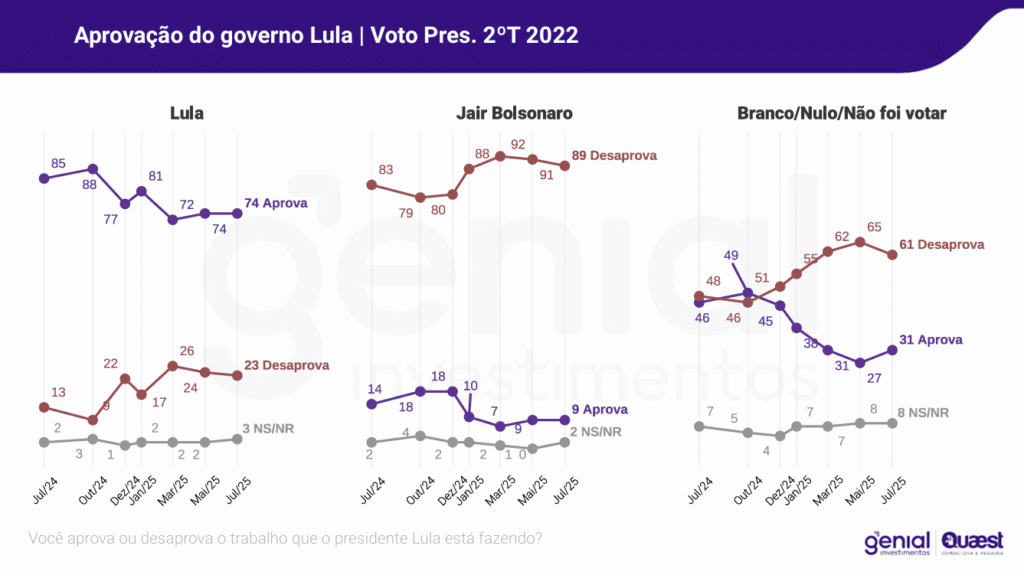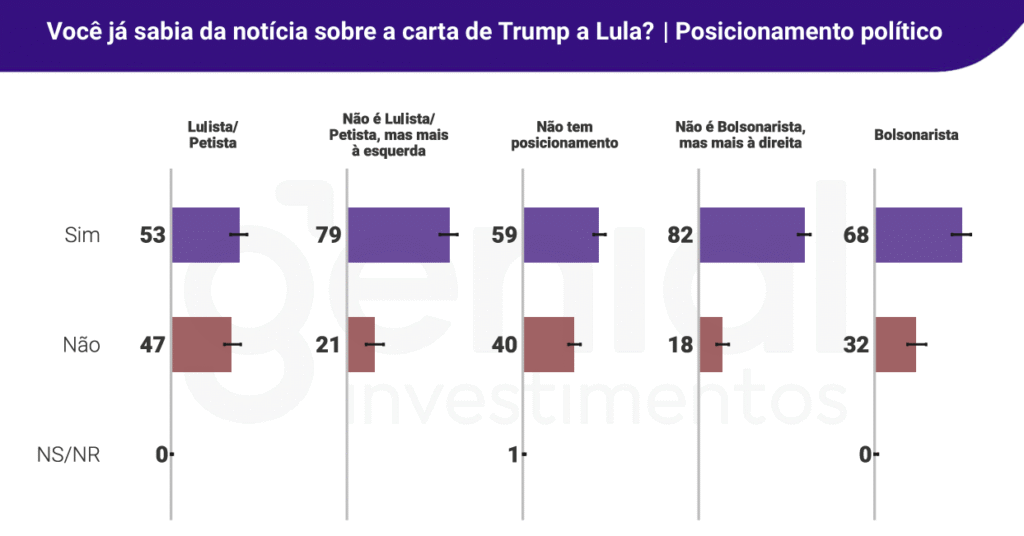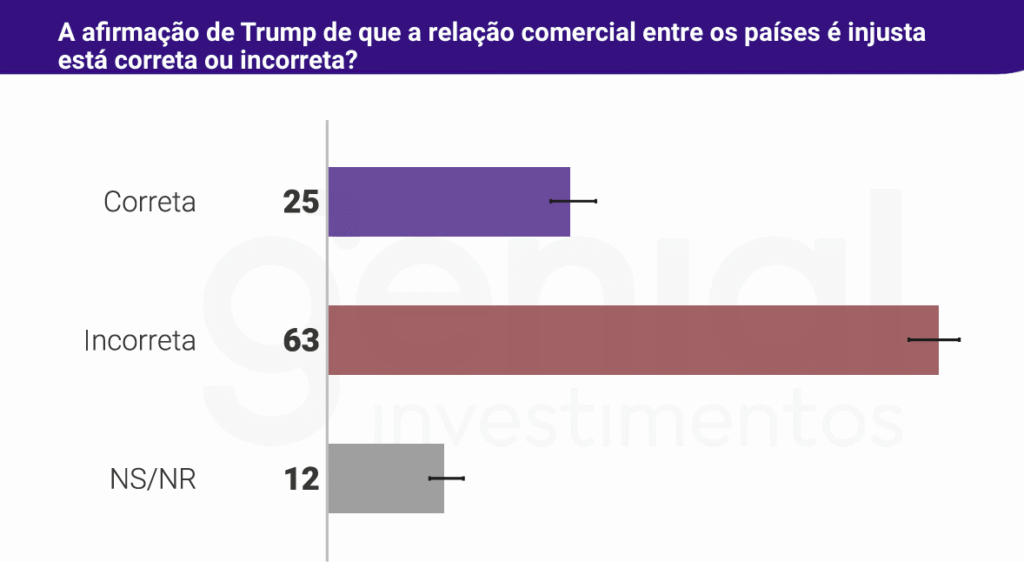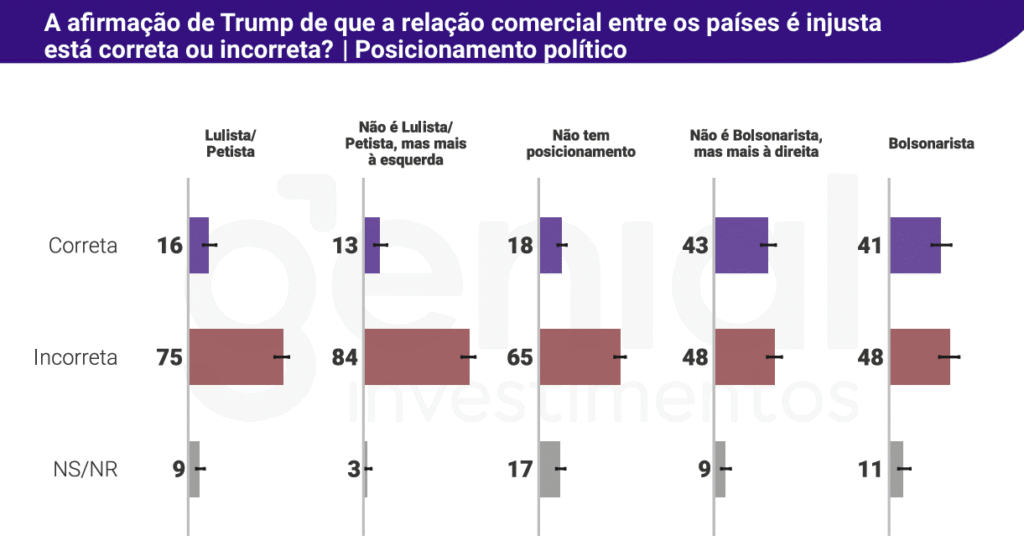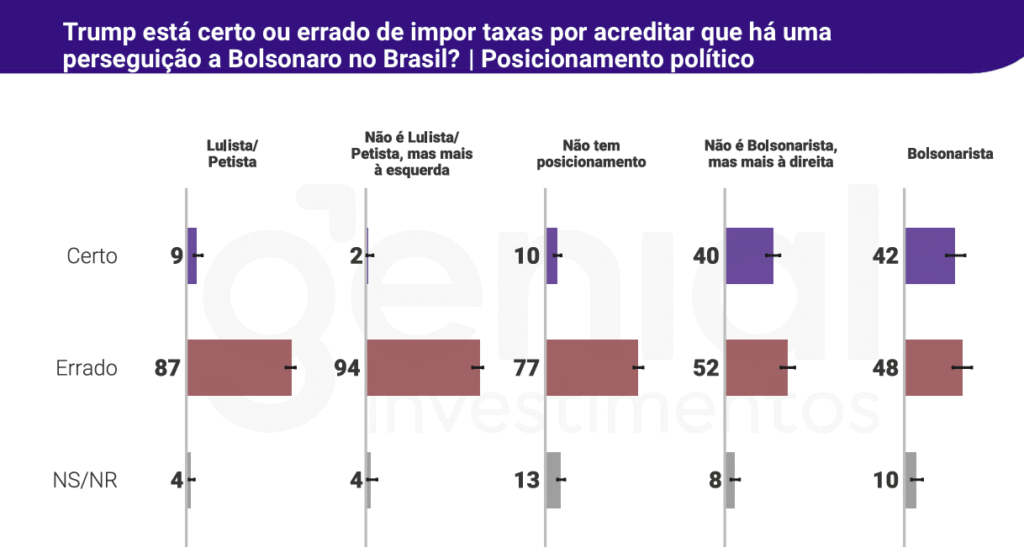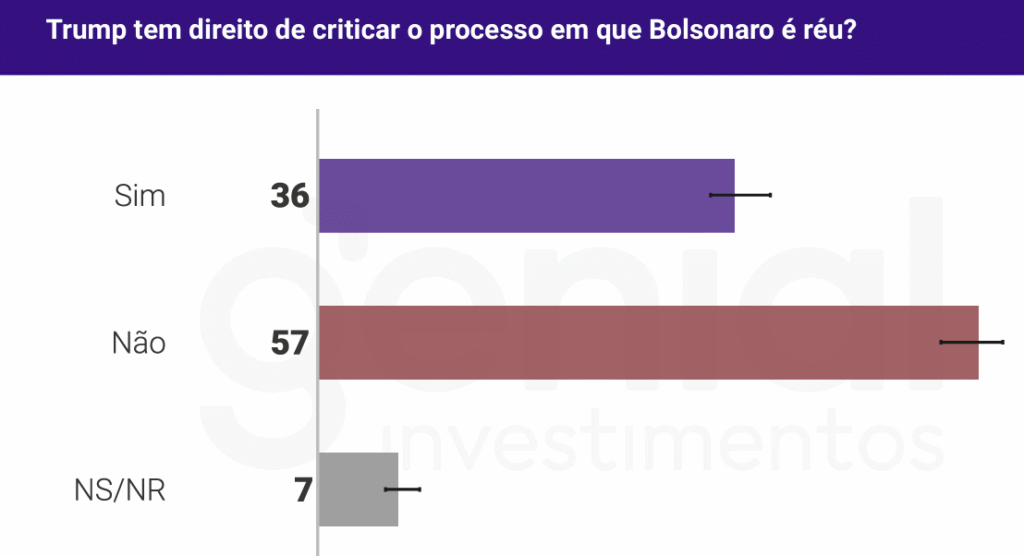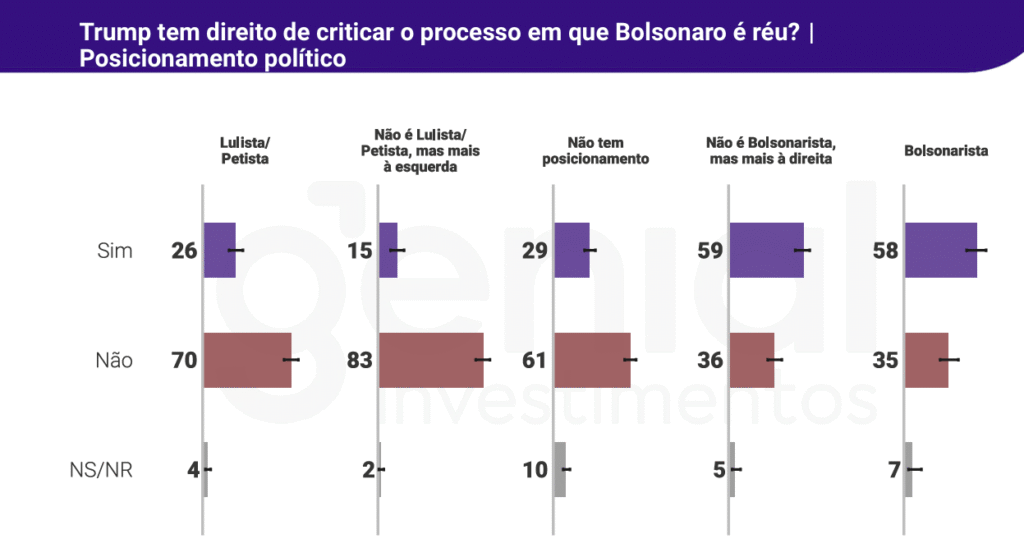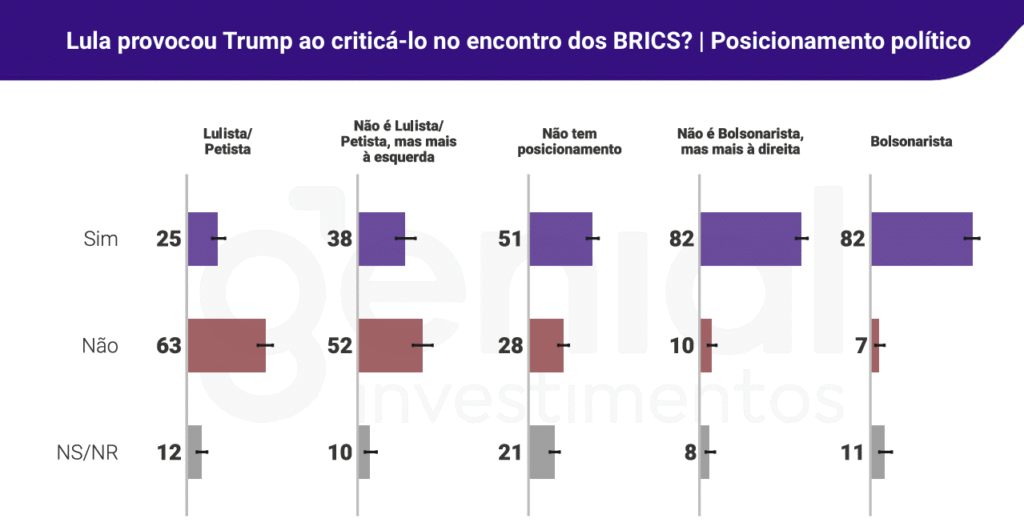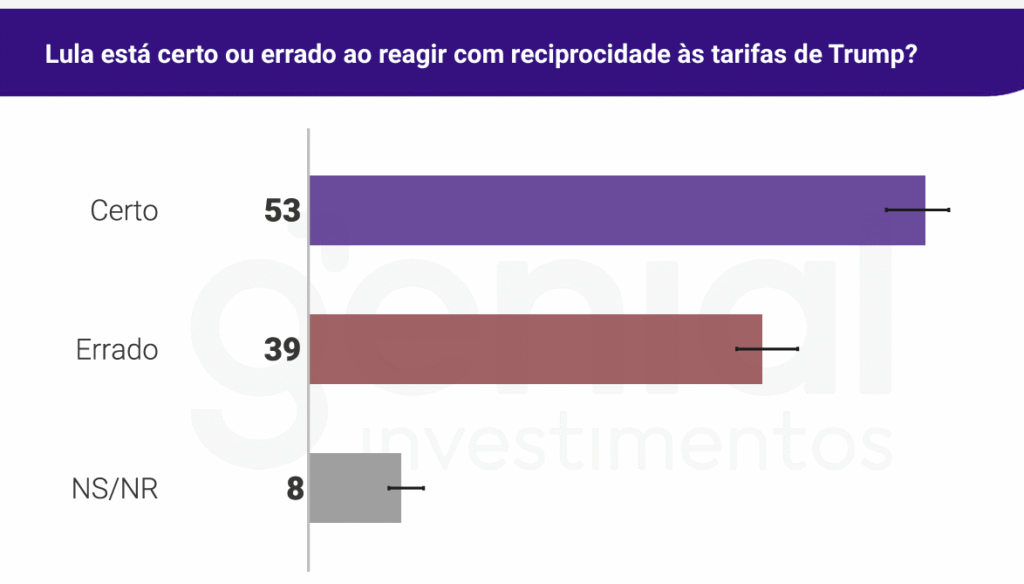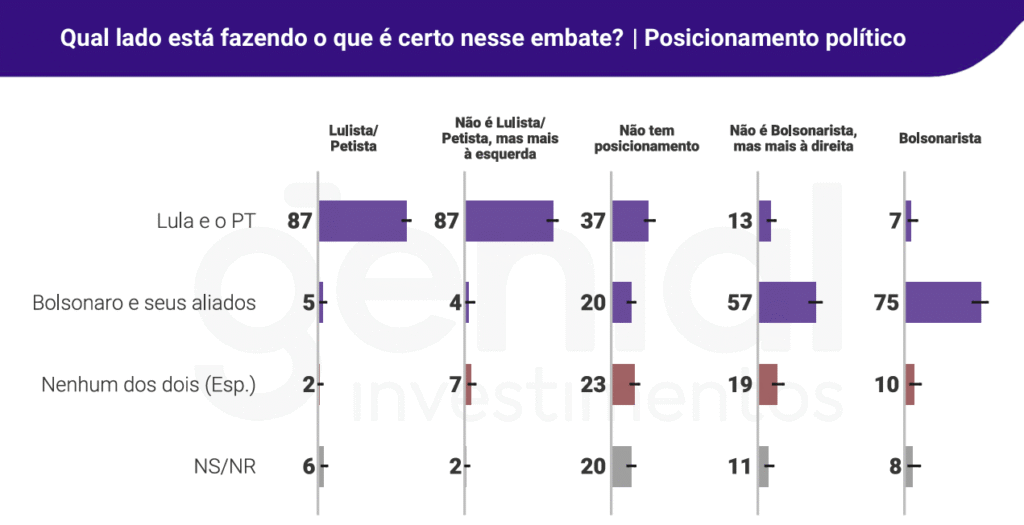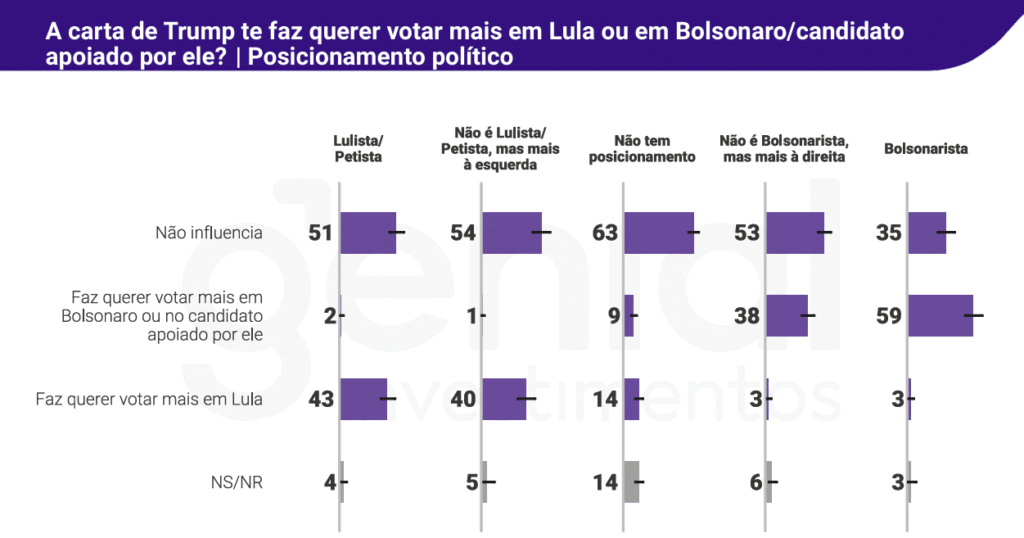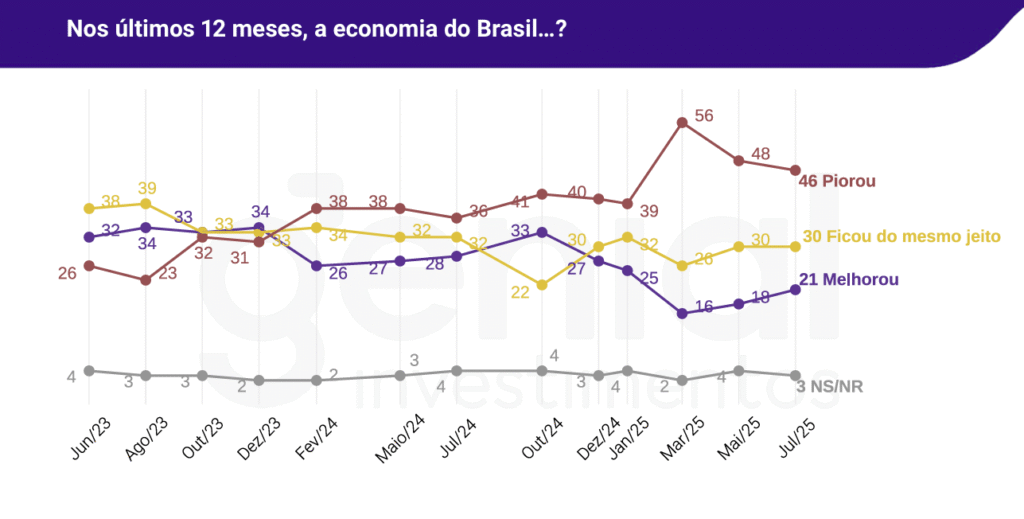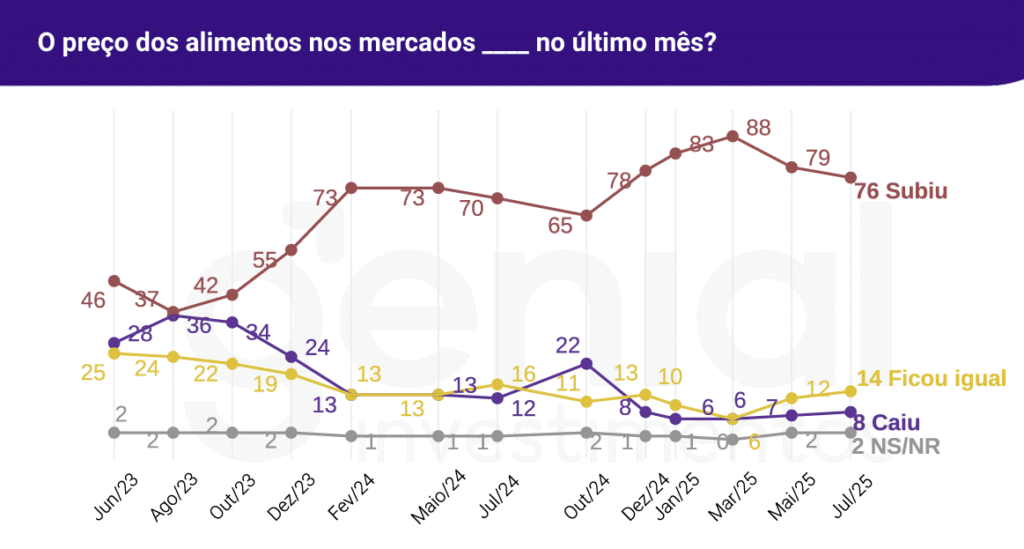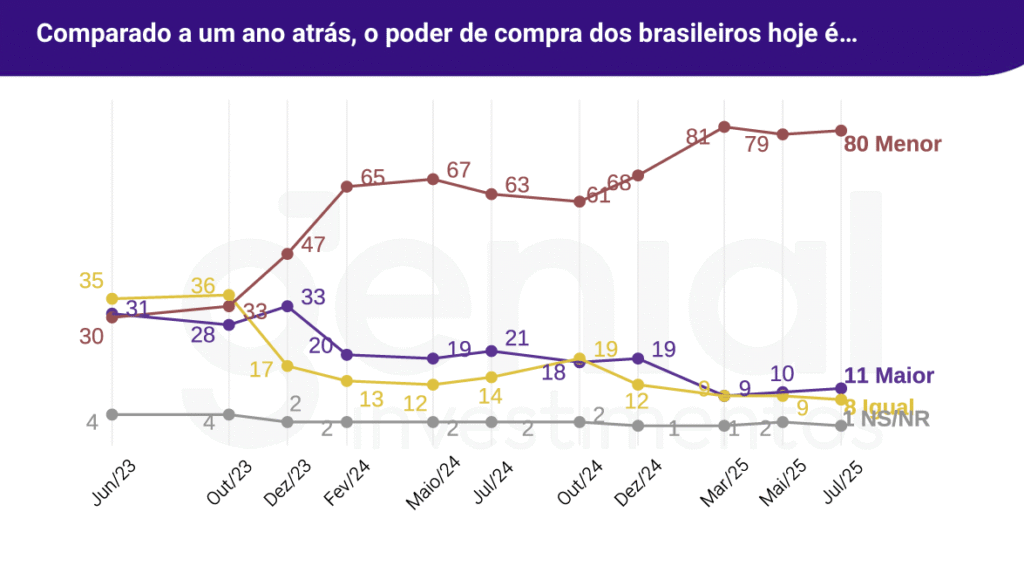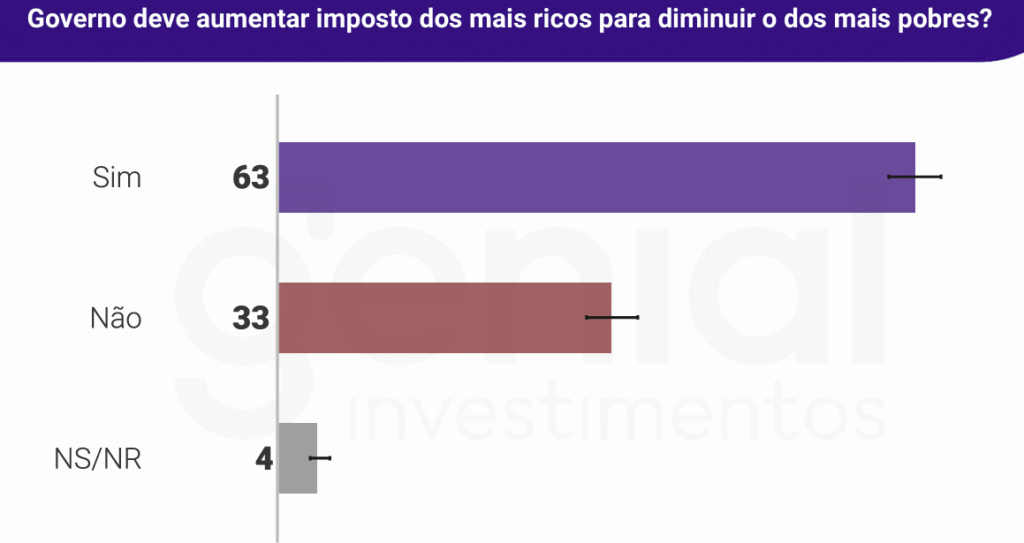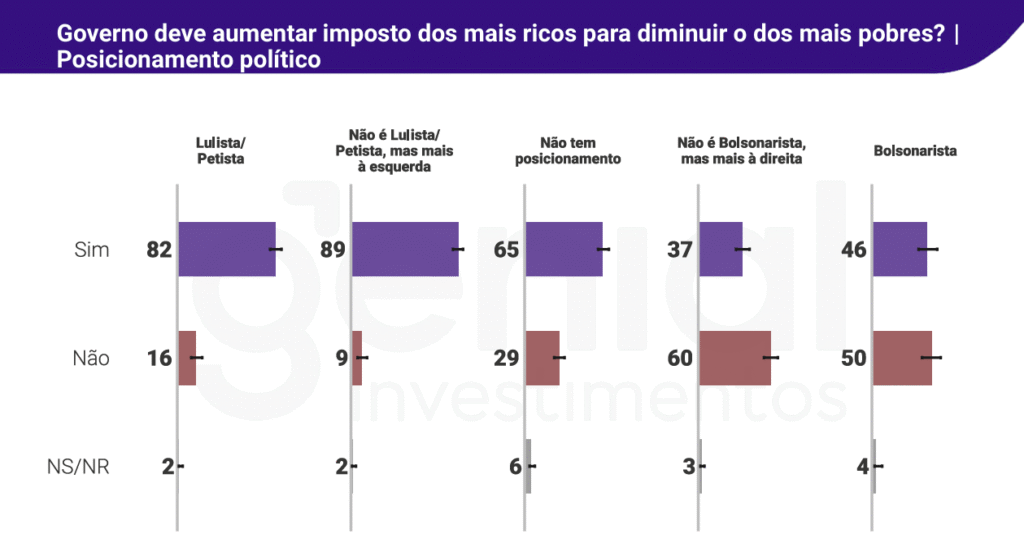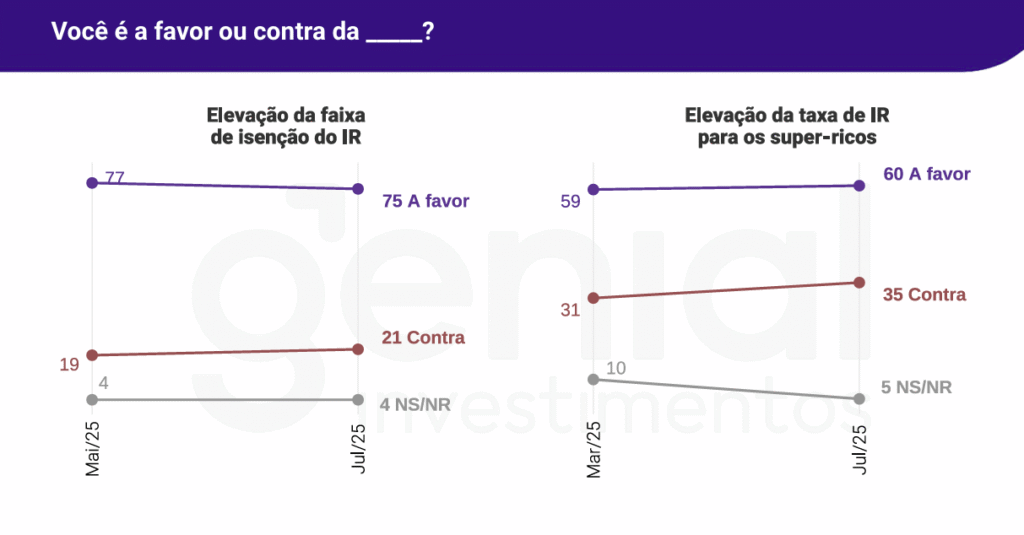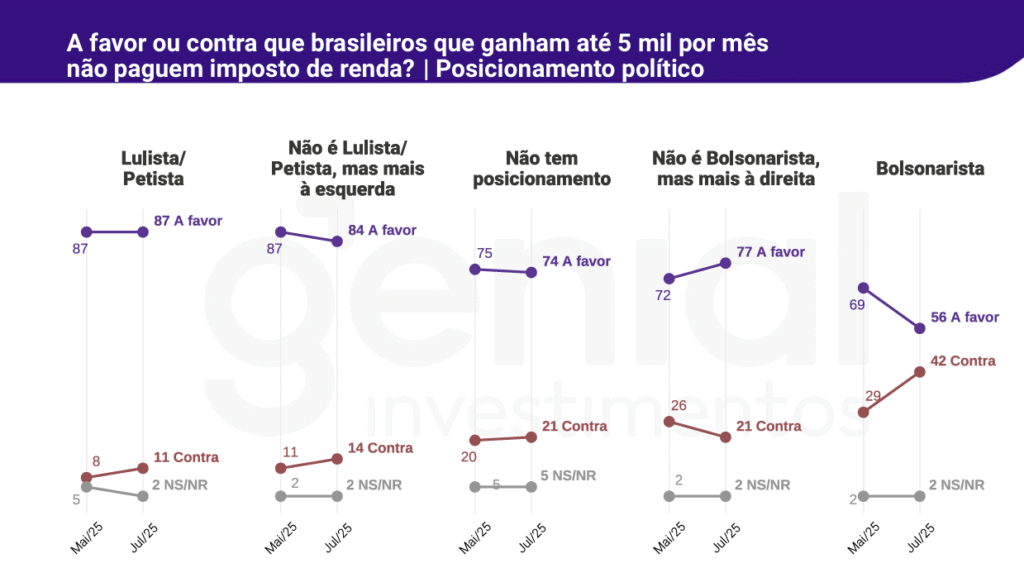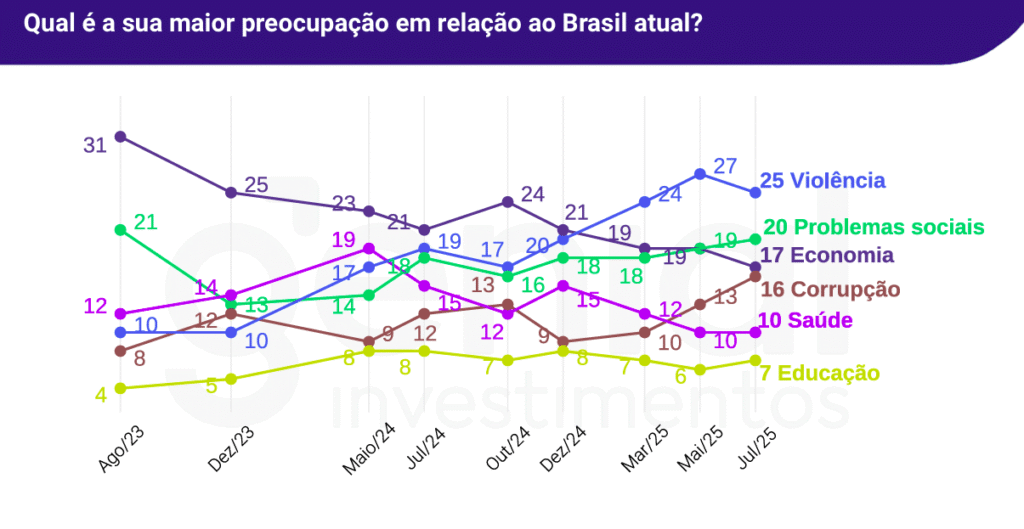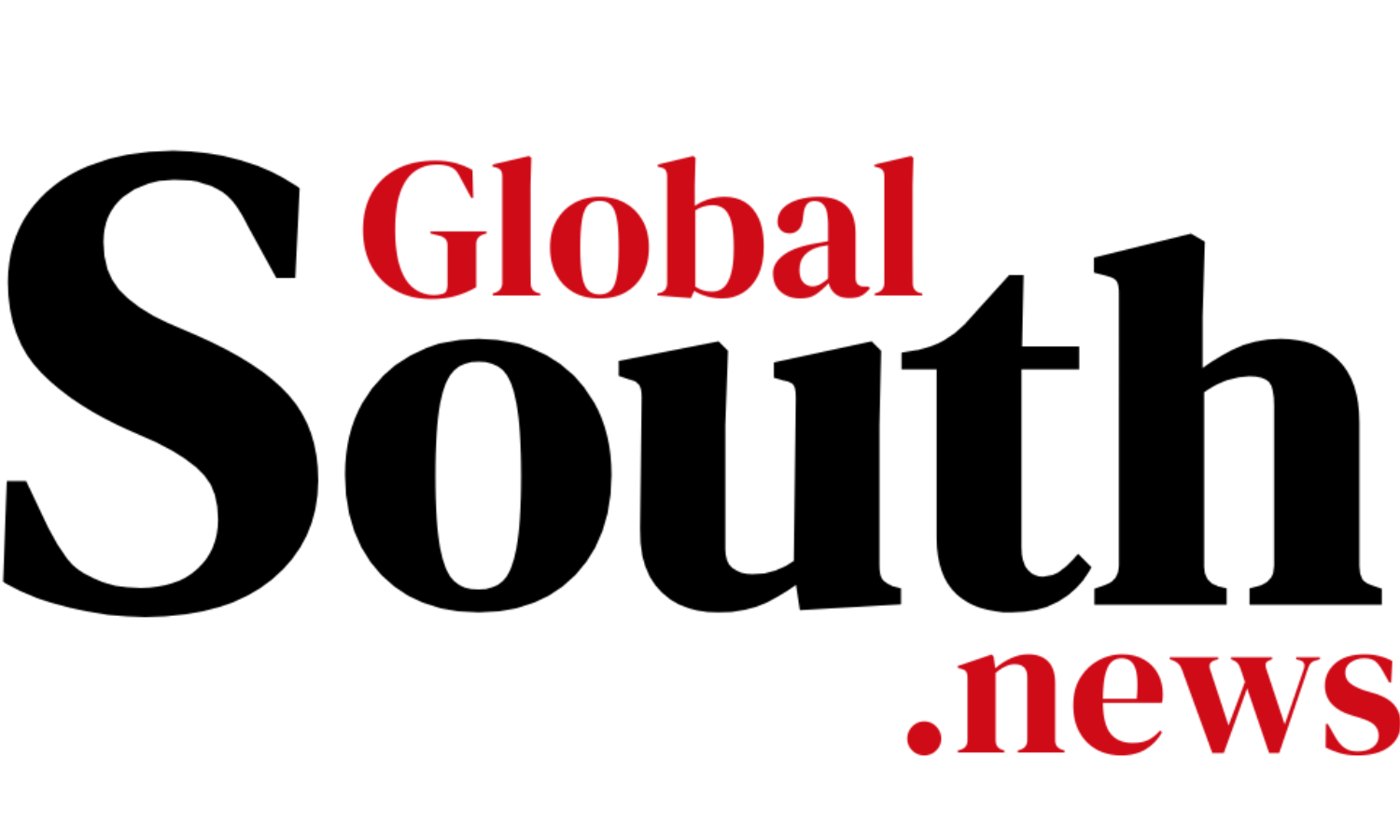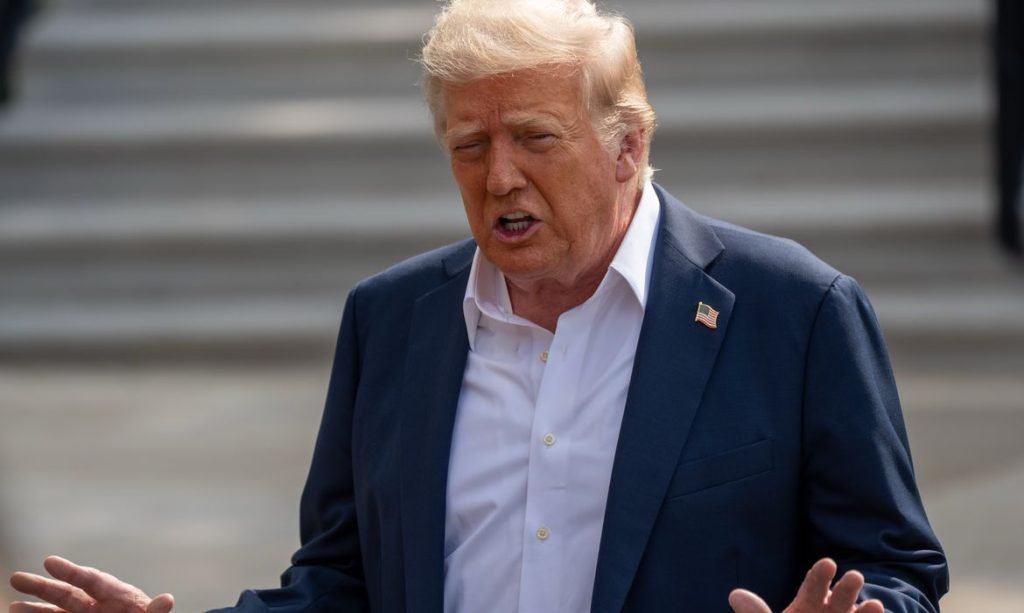
New Quaest poll shows that 84% of Brazilians want national unity against attacks from the American government.
“The irony of history is that the very strength a people considers its greatest pride often becomes the source of its greatest weakness,” said Reinhold Niebuhr in his 1952 classic, The Irony of American History.
The phrase perfectly suits Trump’s attacks on Brazil and the Bolsonaro-aligned political maneuvers that motivated them. What the Bolsonaro supporters thought would be their greatest asset is now revealing itself to be their most fatal weakness. Their alliance with Trump is being seen by an overwhelming majority as an infamous betrayal of the Brazilian homeland.
This irony, by the way, crystallized wonderfully in the attempt by the PL, Bolsonaro’s party, to approve a motion of “praise” for President Donald Trump, hours before the American leader’s letter announcing devastating 50% tariffs against Brazil.
As an astrophysicist would say, it’s a spherical irony. It’s ironic no matter what angle we analyze it from.
The PL’s strategy blew up in the party’s face within hours. First, there was no reason whatsoever for this ridiculous motion. Even before the attacks on Brazil, he had already proven himself to be a terrible president for both Americans and the world.
There’s an even funnier side: perhaps the PL is right; perhaps the PT, the left, and the center itself should unite in this motion of “praise for Trump,” albeit for completely opposite reasons. Trump actually achieved what hadn’t been seen in a long time: uniting Brazil. Or rather, not to exaggerate, almost uniting Brazil.
The Genial/Quaest poll released today shows that an impressive 84% of Brazilians want national unity in defense of our sovereignty, our democratic institutions, and our economy.
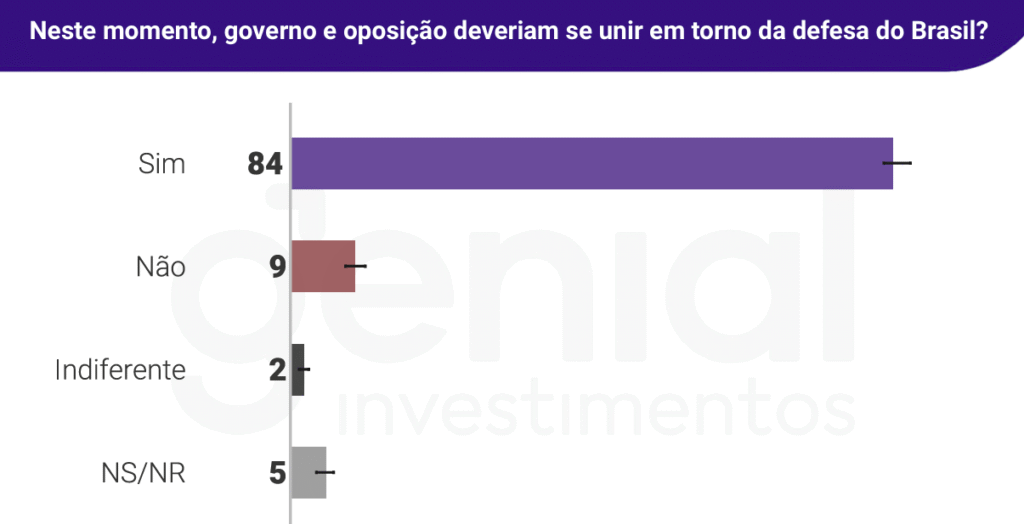
National Unity Crosses All Political Spectrums
What is most striking about the results is how this sentiment in defense of national sovereignty managed to unite Brazilians of all political orientations. Among Brazilians identified as Lula supporters or PT members, 93% support this unity. Among the non-Lula left, the percentage reaches 95%. Among those without a defined political position, 84% also support national unity.
But the most surprising data comes from the right itself. Even among those on the right who are not Bolsonaro supporters, the majority advocates national unity. And what is almost shocking: among Bolsonaro supporters themselves, 74% also defend the unity of government and opposition for the sake of national interest.
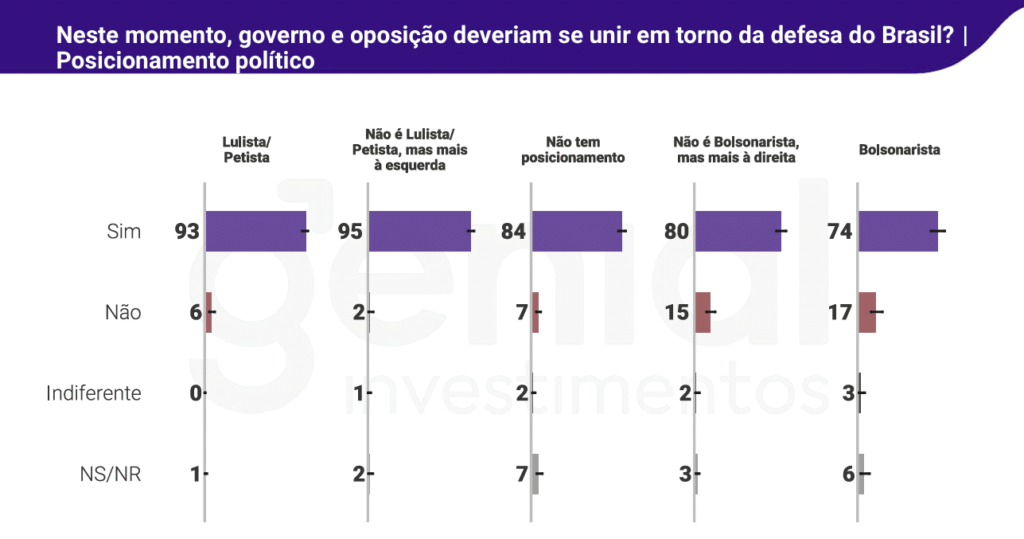
Government Approval Improves Significantly
Lula’s government approval improved significantly between May and July. In the Quaest poll, approval rose from 40% to 43%, while rejection fell from 57% to 53%. Adding the 3-point increase in approval with the 4-point decrease in rejection, we have a total improvement of 7 percentage points in the government’s balance.
There was a significant improvement in some specific segments. Among women, there was a 4-point improvement, possibly motivated not only by the political issue of sovereignty but also by the fall in food inflation.
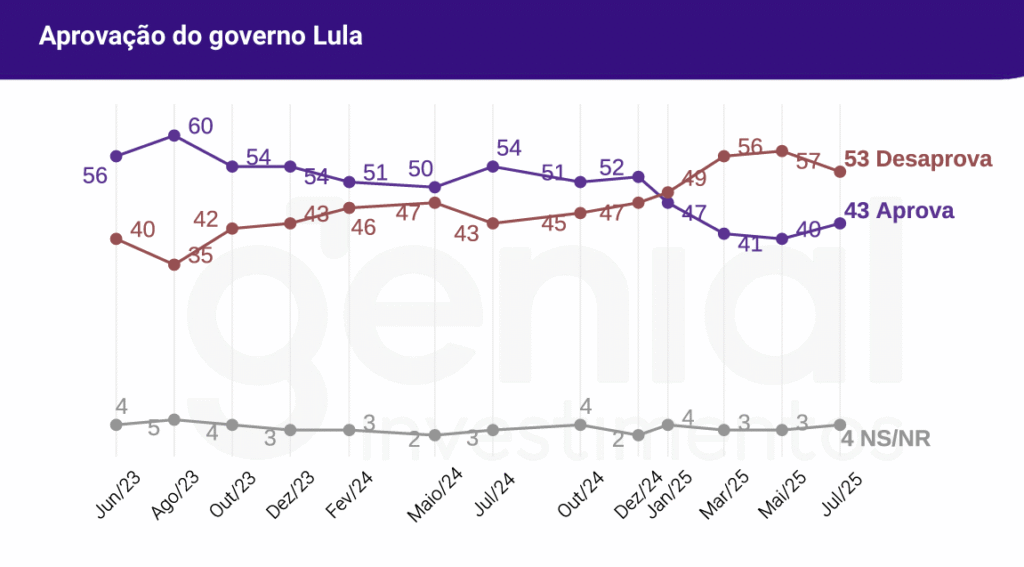
Food Inflation Impacts Approval
The Quaest survey shows a significant improvement in the population’s perception of food prices, confirming the thesis that food inflation correlates with government approval. The more food inflation falls, the better the government’s approval among some segments of the population.
Improved Opinion About the Government
One of the most significant changes in government approval was the expressive improvement among more educated Brazilians. Among those with a complete higher education, Lula’s approval soared from 33% to 45% – a jump of 12 percentage points. This movement is particularly important because it influences public opinion, affects the middle class, and mobilizes that influential center of public opinion, which are the more educated communities.
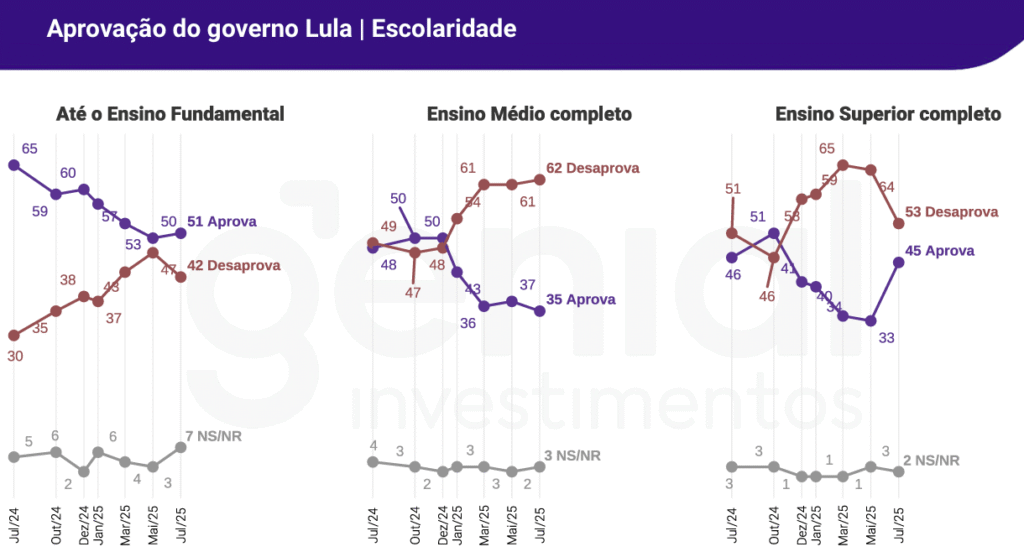
There was also significant improvement among the middle strata. Among families with an income of 2 to 5 minimum wages – a very significant sector in the Brazilian population – approval improved 4 points, jumping from 39% to 43%, with a corresponding drop in rejection.
Among those earning more than 5 minimum wages, approval also improved, from 33% to 37%.
Catholics Approve Again, Evangelicals Maintain Rejection
Among Catholics, Lula returned to strong approval, reaching 50% to 51%. Among Evangelicals, however, the situation remained unchanged: Lula continues to have very strong disapproval at 69% and only 28% approval – the worst approval among Evangelicals in Quaest’s history.
2022 Voters Maintain Positions, But Abstainers Join In
Among those who voted for Lula in the second round of 2022, approval remains high at 74%. Among those who voted for Bolsonaro, only 9% approve of Lula. But there was significant improvement among those who did not vote or cast a blank ballot in 2022: approval rose to 31%, a data point that is likely making a difference in this poll.
The Left Unifies After Trump’s Attacks
The most significant change observed was among two specific sectors. Among those on the left but not Lula supporters, 82% now approve of the Lula government. This is another sign that Trump’s attacks managed to unite the left, which had some internal cracks but converged again in the face of external threats.
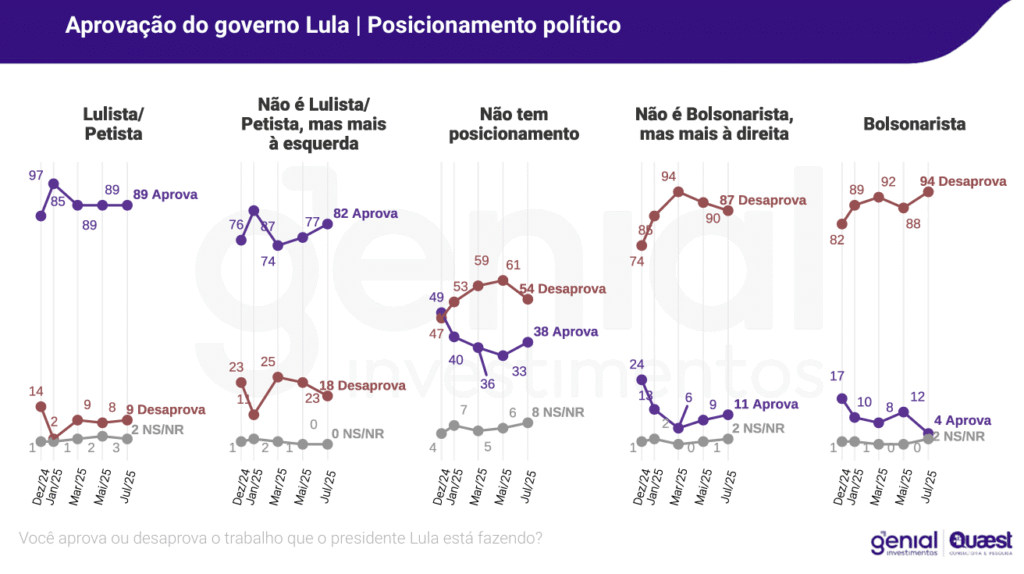
Majority Knows Trump’s Letter, But Lula’s Base Also Improved For Other Reasons
The survey shows that 66% of Brazilians knew about Trump’s letter to Lula with threats to our democratic institutions and the attempt to blackmail Brazil. Another 33% did not know, showing that part of the positive variation did not come solely from the geopolitical issue.
An interesting fact: among Lula supporters and PT members, 47% were unaware of Trump’s letter – almost half. This means that part of the improvement in government approval among Lula supporters must also have come from the economic issue, especially the improvement in food inflation.
Brazilians Reject Trump’s Narrative
The majority of Brazilians, 63%, believe that Trump’s statement that the trade relationship between the countries is unfair is incorrect – meaning that Trump lied in the letter to Lula. Interestingly, even among the Bolsonaro-aligned right, the main group, 48%, believes that Trump was not sincere in his accusations against Brazil.
An even more expressive majority, 72%, believes that Trump is wrong to impose tariffs on Brazil, alleging persecution of Bolsonaro. Even the Bolsonaro-aligned and non-Bolsonaro-aligned right believes Trump is wrong on this issue.
Furthermore, an expressive majority of 57% believes that Trump has no right to criticize Brazilian judicial processes.
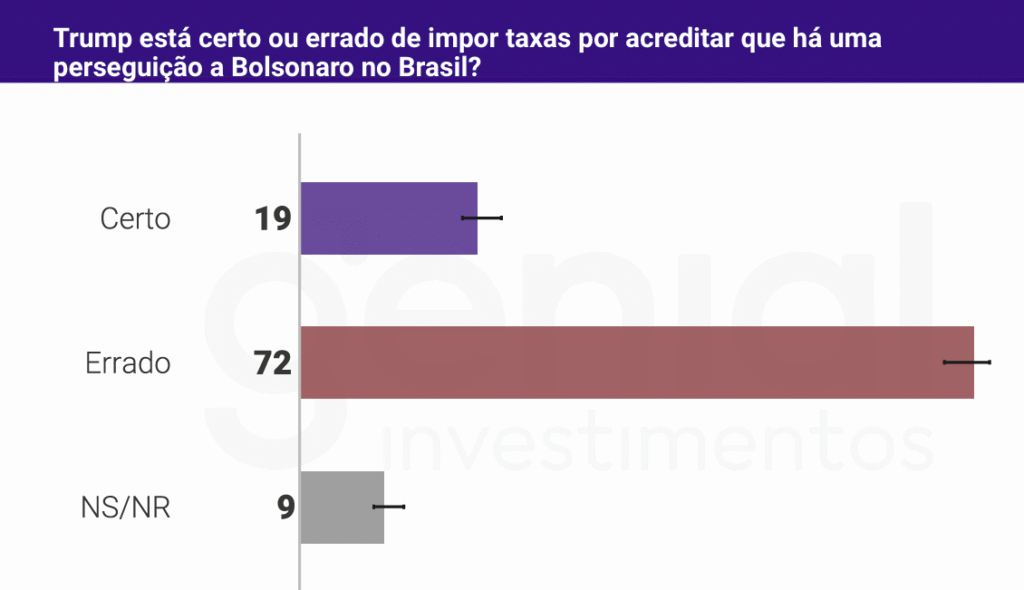
Majority Believes Lula Is on the “Right Side” in the Confrontation with Trump
However, Bolsonaro supporters’ desperate attempt to pin the “blame” for Trump’s tariff hike on Lula did not stick: most Brazilians, 44%, believe Lula is on the “righter” side in this confrontation, against only 29% who consider Bolsonaro and his allies to be the good guys.
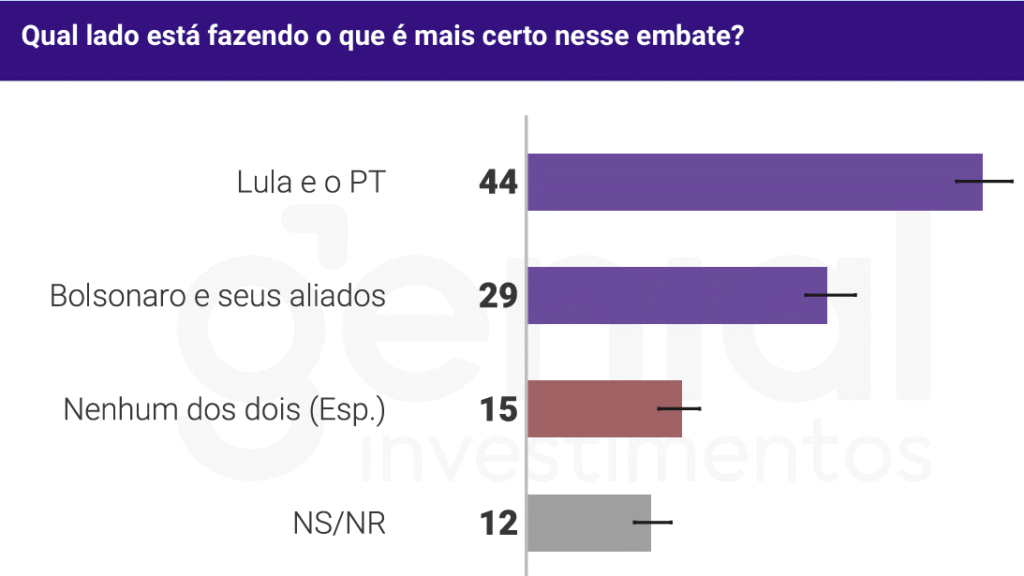
Majority Supports Tax Justice
The survey reveals expressive public support for tax justice measures. An impressive 63% of Brazilians believe the government should increase taxes on the rich to reduce taxation on the poor. This support crosses virtually all political fields: 82% of PT members, 89% of the non-PT left, 65% of those without a political position, 37% of the non-Bolsonaro right, and even 46% of Bolsonaro supporters themselves advocate taxing the rich more to alleviate the burden on the poor.
An even larger majority, 75%, favors raising the income tax exemption bracket for those earning up to R$ 5,000. Meanwhile, 60% support raising the tax rate for the super-rich.
Potential for Growth in Lula’s Approval on the Tax Agenda
Although polls show that most of the population supports tax justice measures, there is great potential for growth for this agenda. Almost half of the population is still unaware of the dispute between the government and Congress regarding tax justice. Among Evangelicals, 55% are still unaware, and among those without a political position, 57% are also unfamiliar with the topic.
According to Quaest CEO Felipe Nunes, the idea of tax justice is known by only 43% of Brazilians, which shows that the rise in government approval must have more to do with the issue of Trump’s attacks and with the improvement in the economy. For this very reason, he says, there is time and potential to improve government approval through this agenda, as other points in the survey show that the majority supports tax justice when they learn about the subject.
Food Inflation Still a Concern
A positive point is that the percentage of people who reported an increase in food prices has fallen. The number dropped from 88% to 76% – a significant improvement. However, it is still a very high percentage, which means that the issue of food prices and inflation in general are still an important concern that the government should pay close attention to.
Methodology
The Quaest survey interviewed 2,004 people between July 10 and 14, 2025. The confidence level is 95% and the margin of error is 2 percentage points. The survey was commissioned by Genial Investimentos.
Click here to download the full survey.
Below are some interesting panels from the survey.
